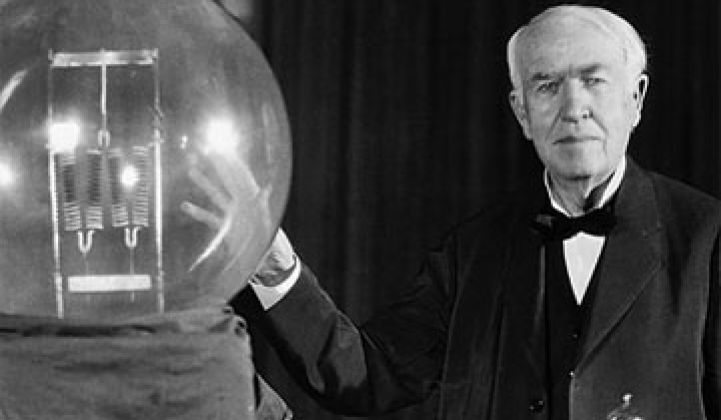Though everyone uses light bulbs, the market for incandescent bulbs has shrunken to the point that the last American incandescent bulb factory, located in Winchester, Virginia, is closing.
The plant closed predominantly because of changes in American energy policy that have prioritized fluorescent bulbs over incandescents when American manufacturers haven't changed their behavior. In 2007, the U.S. Congress passed an energy bill that seeks to phase out the 100-watt incandescent light bulb by 2012 and phase out the 40-watt bulb by 2014, culminating in light bulbs with 70% greater efficiency than what is provided now by 2020. As a consequence, there is no incentive to continue producing the incandescent bulb; however, the plant did not change over to manufacture fluorescent bulbs, and as such, it is closing.
Most sharply affected by the plant's closure will be its 200 employees, many of whom have been working at the plant for several decades and are now suddenly jobless and skilled predominantly at a task -- making incandescent bulbs -- that is almost completely and totally irrelevant to the functioning of contemporary society. Government policy in the last three years has put a sharp emphasis on the adoption of fluorescent bulbs, and this hasn't benefited American manufacturers like policies proposing boosts in green jobs might have hoped, as almost all compact fluorescent bulbs are manufactured in China and the United States government has yet to offer adequate incentives for Chinese manufacturers to be able to build the bulbs in American plants. Retrofitting incandescent bulb plants to produce fluorescent bulbs also proved to be extremely expensive (unlike retrofitting a home that once relied on incandescent bulbs), and in this recession, the money necessary to do so simply isn't available for companies already hurting financially.
This doesn't particularly hurt the argument that green technologies are supposed to create jobs, as antiquated methods of production regularly become phased out no matter how skilled or vital the labor that produced it once was. There's no longer any incentive for computer manufacturers to solder components together by hand, as machinery can do it with much greater precision and produce much more detailed and powerful equipment than a human can, and thus those jobs are gone. There was once a prominent market for tube televisions, but they are now virtually valueless, with most pawn shops unwilling to pay even a few dollars for what was once a costly piece of machinery. And like those products, the incandescent bulb is finished, as it has a clear successor that society and government have deemed significantly more desirable given its benefits.
The bump in green jobs, however, still seems far away. Unlike FDR's New Deal programs, which alongside World War II got America back to work, we've already spent ourselves into such a deficit and our Congress is still so fiercely divided that we've yet to see programs like the Works Progress Administration or the Tennessee Valley Administration provide new work for unemployed Americans in a green outlet. Cash For Clunkers came and went quickly, running out of money for vouchers within a month, and the 2010 Census provided employment opportunities, but those were also fleeting and impermanent.
Furthermore, green jobs will require considerably more skill and investment than any government employment opportunities for the presently unemployed than many programs before it, making the gap, especially at this point in American history, a daunting one. This particular light bulb factory's closure, however, is simply indicative of long-term trends that have favored outsourcing and cost-cutting, as well as the growing irrelevance in the eyes of employers of the middle-aged and lower-middle class.
***
Andrew Hall is a guest blogger for My Dog Ate My Blog. He writes about schools for the Guide to Online Schools.



